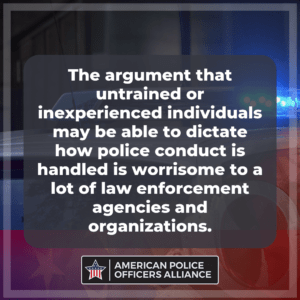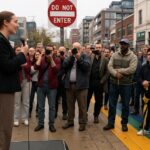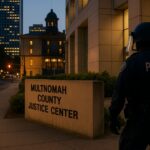As more cities across the country adopt police oversight boards, it’s important to know what they are, what they do, and if they are helping civilians feel more confident in their police officers.
So, what is police oversight? Police oversight is also referred to as civilian oversight because a group of non-police individuals is selected to oversee and review the actions of the police department, including any complaints or concerns against the department or it’s officers.
Police Oversight Boards
Oversight boards are made up of civilians who will review and help improve police officer conduct. Some police oversight boards consist of individuals who may have had some law enforcement experience in the past, such as retired officials, however, not all boards are like that. For example, Los Angeles has a police oversight board that also consists of attorneys and mediators.
Police oversight boards have been around since before the 1900s but not everyone found them to be useful back then. Now, more communities are putting their trust in police oversight boards and hoping they will help improve police oversight. There are currently more than 200 police oversight boards across the country.

Every police oversight board is different but most commonly, there are three main focus models that police oversight boards follow. The first being an investigation-focused board which involves working with citizens. These complaints are investigated by the board, separately from a police department.
Another type of main focus model is that of a review-focused board where the police oversight boards review investigations that were conducted by internal police agencies.
One other common type of focus model within police oversight boards is that of an audit or monitoring which involves larger-scale police reform. With this type of model, the process of complaints is heavily monitored.
The Argument Against Police Oversight Boards
While police oversight boards usually have good intentions in mind, that isn’t to say that everyone is 100% on board with the idea. The American Police Officers Alliance has recently launched a campaign that is providing a more realistic educational approach to police oversight boards.
Both LA and NY currently have police oversight boards that have been criticized about inconsistent discipline and unfair decision making. Policeoversightboardfacts.com states that these police oversight boards aren’t necessarily fair and free of bias when reviewing complaints.
While American Police Officers Alliance doesn’t support the implementation of police oversight boards, they do agree that there is a need for improving trust between police departments and communities.
Moving Forward – Police Oversight
Police conduct is a sensitive subject for a lot of people. More police oversight boards are being created with a goal in mind that both communities and police departments feel like situations and complaints are being handled fairly.
The city of Detroit has had an oversight board for almost 60 years and they have found that it has not only improved their department but also encouraged other cities to enhance the way that their oversight boards run.
However, while police oversight does have good intentions, not everyone thinks that each city should have a board implemented. The argument that untrained or inexperienced individuals may be able to dictate how police conduct is handled is worrisome to a lot of law enforcement agencies and organizations, including American Police Officers Alliance.
It is our hope that moving forward, police oversight boards can be explored further and improved so that both communities and police departments feel that conduct is handled appropriately and fairly.









